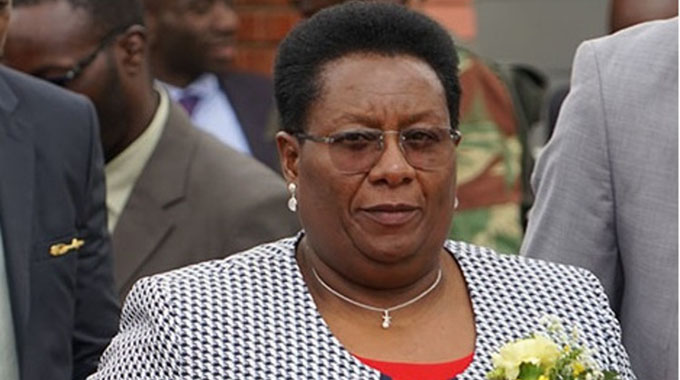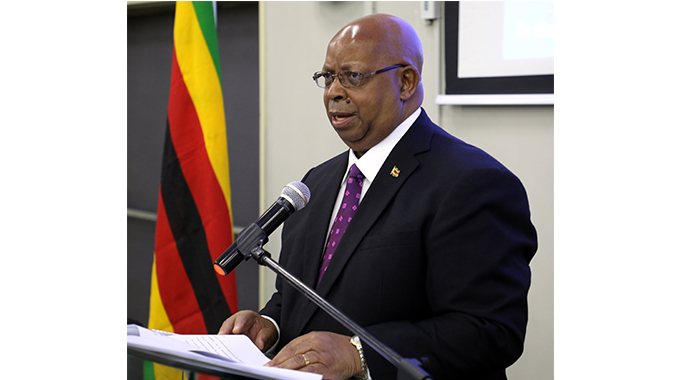The Chronicle

Nqobile Bhebhe, Senior Reporter
ACTING Prosecutor-General Mr Nelson Mutsonziwa has said the National Prosecuting Authority (NPA), working in conjunction with the Zimbabwe Anti-Corruption Commission (Zacc), will clear the backlog of corruption cases within 12 months.
Recently, Zacc chairperson Justice Loice Matanda-Moyo said they had since engaged the NPA and the Judicial Service Commission (JSC) to ensure speedy resolution of cases that the anti-graft body would have completed investigating.
President Mnangagwa has, on many occasions, declared zero tolerance on corruption and warned those found guilty of any form of misconduct that they face the grim prospect of life behind bars.
Addressing a capacity workshop for African Parliamentarians Network Against Corruption (APNAC) in Bulawayo on Friday, Mr Mutsonziwa said the set target of six and 12 months for non-complex and complex corruption cases is achievable.
“The National Prosecuting Authority shall prosecute all corruption cases without fear or favour and strive to complete non-complex cases within six months and complex matters within 12 months as pronounced recently by the National Anti-Corruption Committee. The target period is, in my view, easily achievable with the support of all stakeholders including defence lawyers” he said.
Speaking at the same event, Justice Matanda-Moyo said there has been improvement in the prosecution of high-profile cases.
“Now we have increased investigations of high-profile cases and cases of national interest, at least 75 percent of these will be referred to the National Prosecuting Authority,” said Justice Matanda-Moyo.
 Justice Loice Matanda Moyo
Justice Loice Matanda MoyoShe said assets worth US$50 million corruptly acquired have been seized to date.
Justice Matanda- Moyo said delays in the prosecution of cases pose a challenge to Zacc. She however, said following an improved relationship between her organisation and NPA, they have agreed to fast track matters as well as engaging JSC.
In his remarks, Speaker of Parliament, Advocate Jacob Mudenda, said the country’s sentencing regime of persons convicted of corruption is too lenient because of the option of a fine.
“I understand Zacc has approached the Public Service Commission so that a law can be put in place to address conflict of interest and declaration of assets by all civil servants. May I throw down the gauntlet on the Executive together with Parliament to forge ahead towards full compliance with the provisions of the United Nations Convention against Corruption” he said.
The United Nations Convention against Corruption (UNCAC) is the only legally binding universal anti-corruption instrument.
The Convention covers five main areas: preventive measures, criminalisation and law enforcement, international cooperation, asset recovery, and technical assistance and information exchange. The Convention covers many different forms of corruption, such as bribery, trading in influence, abuse of functions, and various acts of corruption in the private sector.
The vast majority of United Nations Member States are parties to the Convention.
Advocate Mudenda said legislators have a responsibility to ensure that institutions such as the Zimbabwe Republic Police (ZRP), Zacc, NPA and JSC are supported adequately with resources both financial and human, to enable them to effectively discharge their mandate.
 Advocate Jacob Mudenda
Advocate Jacob Mudenda“Some of the major constraints faced by Zacc, the NPA and other anti-corruption agencies include inadequate or lack of skilled personnel to handle complex cases of corruption as well as resources such as vehicles and equipment necessary to prevent corruption. For example, our ports of entry and exit do not have high-quality scanners to detect minerals such as gold and diamonds which can be easily smuggled out of the country,” he said.
“As such, the ZRP through its Minerals and Fauna Unit as well as Zimra are unable to effectively carry out their assignment at our ports of entry and exit. To this end, it is incumbent upon legislators, especially those in APNAC, to ensure that there is adequate budgetary support towards these institutions so that they are capacitated for them to curb further revenue losses.” – @nqobilebhebhe.
Article Source: The Chronicle
